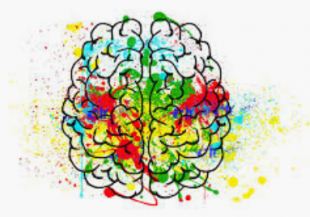Hello everyone. My name is Steve and I am the Digital Assurance Manager, in the Department for Transport.
I am neurodiverse (dyslexic to be more specific) and this means that my disability is invisible. I’ve been a civil servant since 1997 and I’m pleased to see that that diversity and inclusion is becoming an important discussion topic.
I know why inclusion and diversity is important to me but I’m going to write about why it’s important to everyone. I’ll start by focusing on the point made above, which is that not all protected characteristics are visible. Many are not static, meaning that they can become more or less severe as people progress through life. This could, for example, mean that a close relative or friend is neurodiverse but you wouldn’t recognise that just by looking at or even talking to them.
Increasing diversity and inclusion in our workplace strengthens the skill sets we have in the workplace. I can think very differently from neurotypical people. For example, I recently presented on neurodiversity to senior leaders and was the only person to notice that all pictures on the wall linked to transport. That’s a strength, seeing different factors to consider and having different ideas on solutions to problems.
Within my profession, information security, it is important to be able to think creatively but at the same time to develop robust processes that people can understand and follow. Neurodiverse people can be extremely strong in these two skill areas. I can review risk assessments, offer different perspectives and strengthen the outcome, which adds value to the business. This can often act as an enabler, which is important when building relationships with people from other areas of the business and this raises the profile of the work we do.
I am passionate about diversity and inclusion and my day job can benefit this agenda but, likewise, my diversity and inclusion interests can benefit my day job. For example, I am an active member of the Neurodiversity Network within the Department for Transport. They were interested to know whether it is possible to print from home and I was able to share a new Printing at Home Policy, which I had written when regular home working started. This was very important to neurodiverse colleagues because some find it difficult to read from a screen. At the same time, neurodiverse colleagues have greater knowledge of the role of the Information and Assurance Team and this has increased our visibility.
I want to finish with challenges for everyone. First, to my neurodiverse colleagues (or anyone with a protected characteristic for that matter), I want you to challenge yourselves to raise awareness of neurodiversity (and the benefits of diversity) and how your strengths can positively contribute to the business. You will have different strengths, some of which may be unique in your business area. I encourage you to use these. You may need to ask for reasonable adjustments to help you reach your potential and the civil service provision for these adjustments is good.
Second, I challenge everyone to learn more about the diversity of their teams and how the combined skill sets can improve quality and speed, so that outcomes are delivered faster and are better informed. This may mean that different people are given very different tasks, even though they’re in the same role. We need to move away from the one size fits all approach and focus on the strengths of people.
The civil service is committed to be the most inclusive employer by 2025. Everyone has a part to play and the importance of representing the communities that we serve cannot be underestimated. How will you contribute to this important agenda?
2 comments
Comment by Gavin Thomas posted on
Thank you Steve for sharing with us your story.
I can confirm that within the Foreign and Commonwealth Office, we have a Staff Association called ENABLE that supports colleagues with both visible and non visible conditions and an FCO Neurodiversity Network. Both are proactive in looking to increase awareness and understanding and ensure that we have a workplace that is inclusive.
Comment by Kevin Woolley posted on
Thank you for sharing this Steve - a really interesting and helpful blog. I particularly like your observation about making the most of the strengths of the people in our teams and how neurodiverse colleagues can add so much to that collection of skills and yet we might be completely unaware that those skills exist.